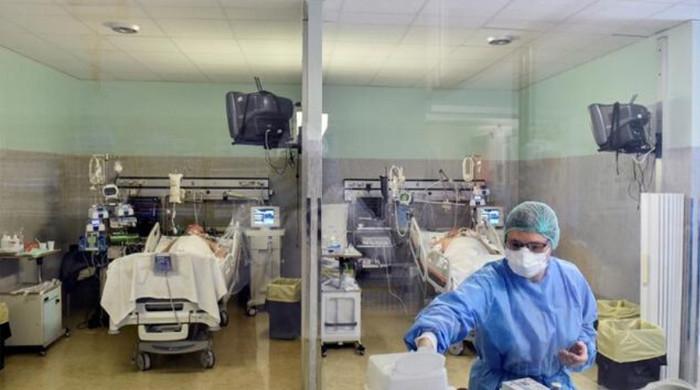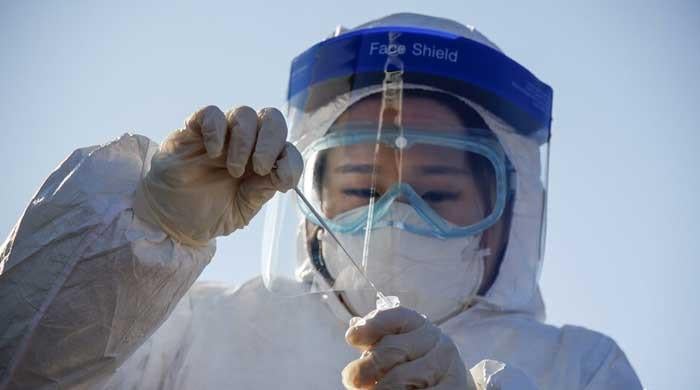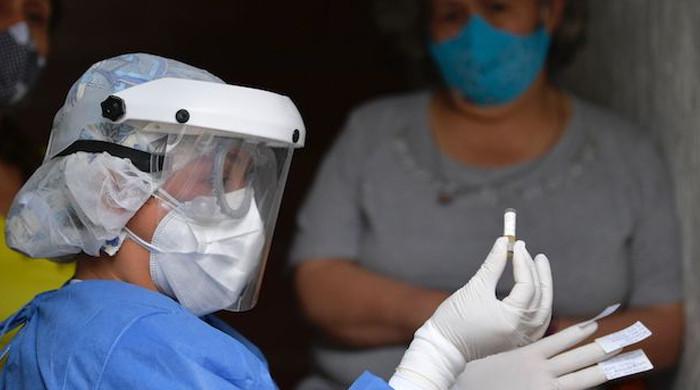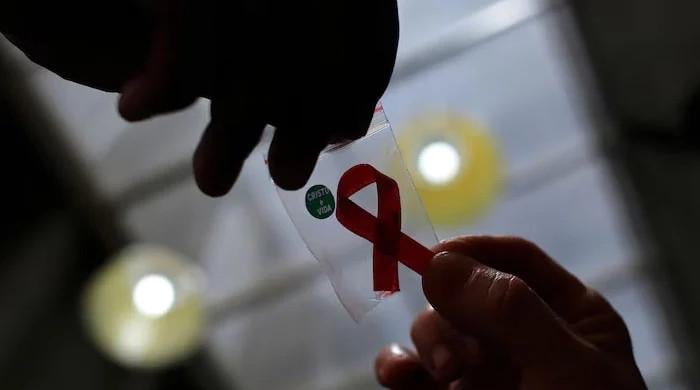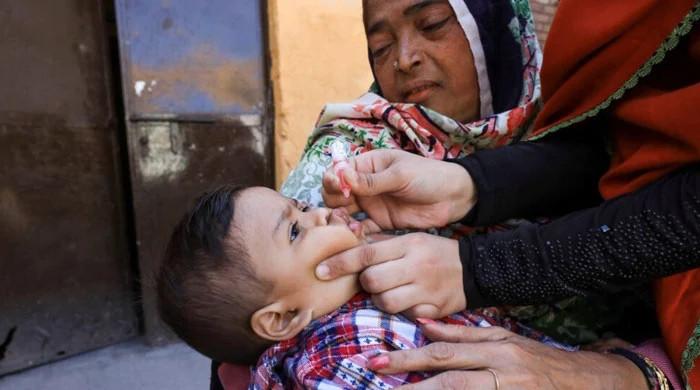47,000 pregnant women housed in Sindh relief camps: Azra Pechuho
More than 134,000 cases of diarrhoea and 44,000 cases of malaria have been reported in Sindh, says Pechuho
September 04, 2022
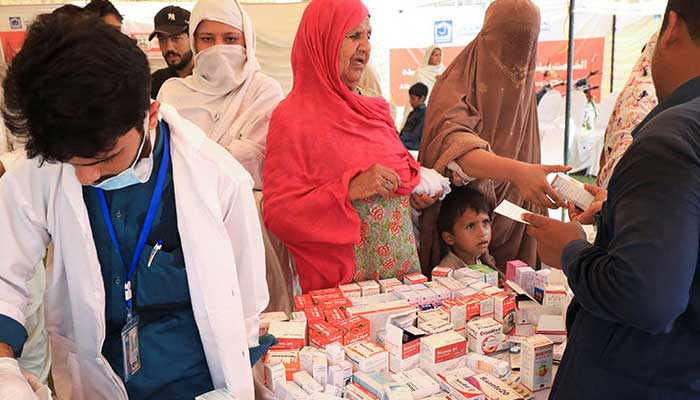
- Almost 47,000 displaced pregnant women have been housed at relief camps in different areas of Sindh, says Dr Azra Pechuho.
- Following the deadly floods, the affected areas are now facing outbreaks of waterborne diseases, she says.
- "More than 134,000 cases of diarrhoea and 44,000 cases of malaria have been reported in the province," says Pechuho.
KARACHI: Stressing the need for medical supplies amid devastating floods, Sindh Health Minister Dr Azra Pechuho has said that almost 47,000 displaced pregnant women have been housed at relief camps in different areas of the province.
“More than 134,000 cases of diarrhoea and 44,000 cases of malaria have been reported in the province,” Pechuho said while speaking to DawnNewsTV.
Following the deadly floods, the affected areas are now facing outbreaks of waterborne diseases, she added.
Waterborne infections grip flood-hit areas
It is pertinent to mention here that following the unprecedented deadly floods triggered by monsoon rains more than 500% above average levels, the affected people are now facing outbreaks of diarrhoea, dengue, skin diseases and other waterborne infections across the country, say health officials.
Many flood victims, including women and children, are complaining of psychological distress after losing their homes, loved ones and livelihoods, the officials added.
Public and private health officials said diarrhoea, cholera and other waterborne diseases had started killing both adults and children in the flooded areas in different districts of Sindh, Balochistan and southern Punjab, while people had also started losing lives due to malaria, but no accurate figures were being provided by the health officials.
“As many as 17,242 people, including men, women and children, were treated for skin infections at 442 fixed and mobile camps in Sindh. Diarrhoea, gastroenteritis, typhoid and dysentery are the second most common diseases among floods affectees followed by respiratory infections. Around 14,869 cases of waterborne diseases and 13,326 cases of respiratory illnesses were treated on Friday at 442 medical camps, established by the Sindh health department,” an official of the Directorate General of Health Sindh told The News.
'0.6m pregnant women in need of health services'
Earlier, the United Nations Population Fund (UNFPA) stressed the need for providing healthcare facilities to almost 650,000 pregnant women in flood-affected areas in Pakistan.
In a statement on August 31, the UNFPA said that it estimated that almost 650,000 pregnant women in the flood-affected areas require maternal health services to ensure a safe pregnancy and childbirth.
“Up to 73,000 women expected to deliver next month will need skilled birth attendants, newborn care, and support,” said the UN agency.
‘Pregnancies can’t wait for emergencies to be over’
“Pregnancies and childbirth can’t wait for emergencies or natural disasters to be over. This is when a woman and baby are vulnerable and need the most care. UNFPA is on the ground, working with partners, to ensure that pregnant women and new mothers continue receiving life-saving services even under the most challenging conditions,” said UNFPA Pakistan Representative Dr Bakhtior Kadirov.
More than 1,000 health facilities are either partially or fully damaged in Sindh province, whereas 198 health facilities are damaged in affected districts in Balochistan, Kadirov said, adding that the damage to roads and bridges has also compromised girls' and women's access to health facilities.
“We will continue supporting health facilities with the equipment and human resources to be fully operational despite the challenging humanitarian conditions,” Kadirov added.





